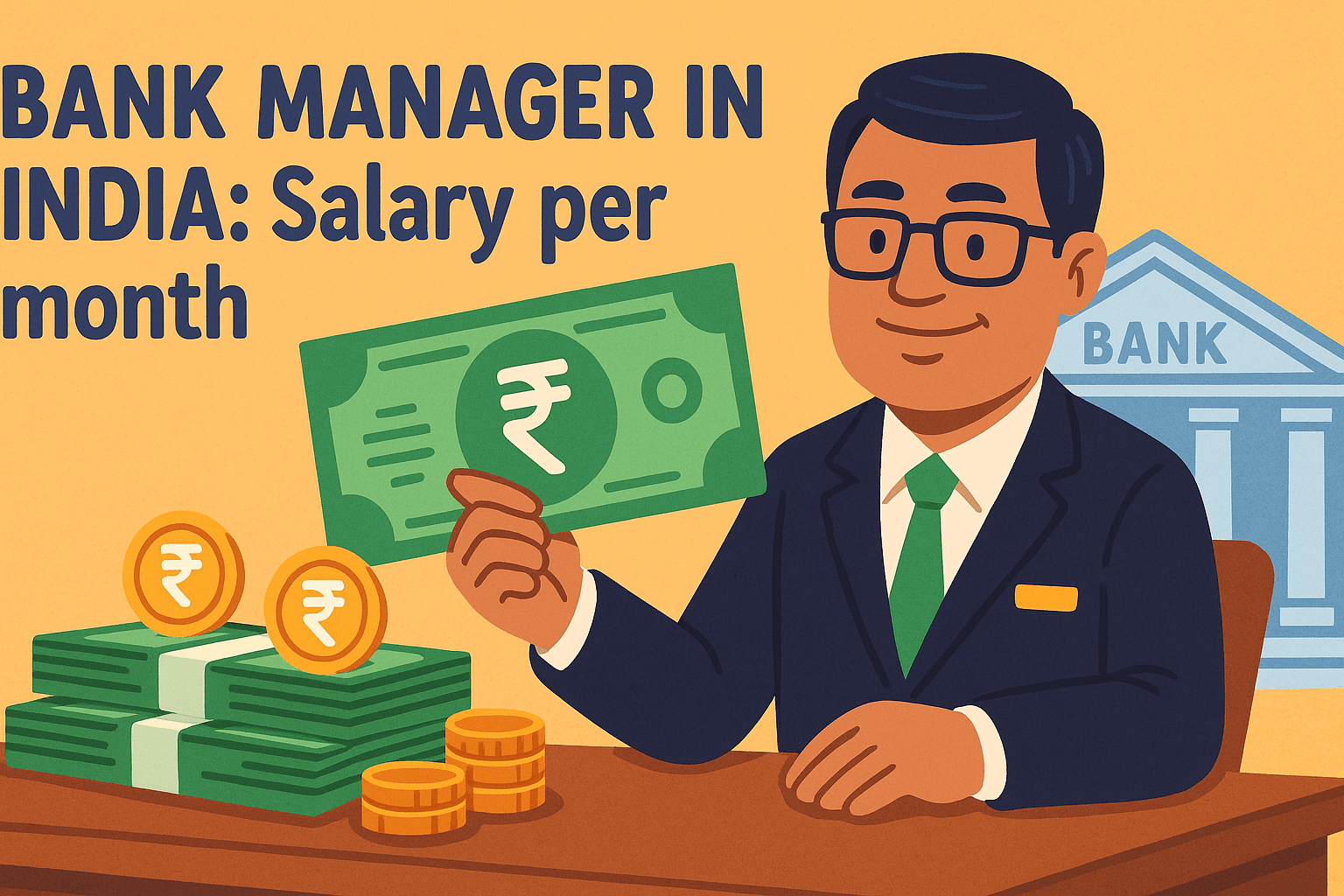In India, Bank jobs are highly respected and demanding for various reasons. Both private and public banks are essential part of our economy; they serve as the foundation of money flow in the market. Bank jobs provide security and stability many people wish to have in their jobs, career growth is slow but structured, public sector banks also provide a fine work-life balance and pan-India job postings are also offered in bank jobs. All these factors make bank jobs a highly attractive and reputed career option in India. The handsome salary even at entry-level positions and comprehensive perks and allowances makes this job highly competitive yet lucrative.
How to get a job in Banks?
Bank jobs involves a combination of education, passing government entrance exams, specific skill set and basic knowledge of country’s economy and finance.
• Educational Qualifications – a bachelor’s degree from a recognized university is the minimum educational qualification. Degree in finance, commerce and business administration usually provide strong foundation in financial concepts but candidates from any stream are eligible. As such there are no minimum marks criteria but students should at least have 50% marks in graduation.
• Entrance Exams - to enter in public sector banks, one needs to clear competitive exams held for different positions by different public institutions. Some exams for officer entry - level positions are discussed under:
IBPS Exam – this exam is conducted by the Institute of Banking Personnel Selection (IBPS) for different positions such as clerk, Probationary Officer (PO) and Specialist Officer (SO). There are 11 public sector banks under IBPS such as Bank of Baroda, Bank of India, Punjab and Sind Bank, Canara Bank, etc.
SBI Exam – this exam is conducted by State Bank of India for positions at different level, clerk, PO and SO, same as IBPS but this exam is exclusive for SBI banks across India.
RBI Exam – this exam is conducted by the Reserve Bank of India for different position at RBI such as clerk, PO and SO. This exam may require a higher percentage of marks in graduation.
• Exam Pattern and Syllabus – the above mentioned competitive exams follow a similar pattern, the exam has three qualifying stages: Prelims, Mains and Interview (for some positions). The syllabus includes English Language, Reasoning and Aptitude, Current Affairs, basic Computer Applications Knowledge and Data Analysis and Interpretation.
• Private Banks – In the last decade, private banks have been growing rapidly, many domestic private banks such as Axis Bank, HDFC Bank, ICICI Bank, hire candidates throughout the year based on qualifications, skills and experience. There is no common entrance test for private banks but they may conduct their own online aptitude test followed by an interview for the selection process. Preferred degrees are BBA, B.Com, MBA, Economics and Finance, but every stream graduates are eligible.
Why to get a job in a Bank?
Bank jobs offer security and stability particularly Public Sector Banks as they have government ownership and backing. Banking jobs offer competitive salaries and many perk and allowances such as Housing Rent Allowance, Medical insurance, Provident fund etc. Bank employees can progress from clerk or PO positions to managerial posts as banks have structured hierarchy and well defined career growth. Banks have branches all over India which opens door for job opportunities in different cities.
Bank Manager Salary
The main topic of this blog is the salary of Bank Manager per month, so let’s discuss the income of a Bank Manager in detail.
Bank Manager Salary in India can vary slightly based on various factors such as experience in work, location (tier 1 or 2 cities), the type of the bank (private, public, foreign) and the specific post.
The average salary of Bank Manager in India is generally around rupees 50,000 to 70,000, according to recent data of 2025. The Bank Manager salary also depends on the years of experience in the banking sector; at entry level position the salary can range from rupees 30,000 to 50,000; with mid-levels of experience the salary can range from rupees 60,000 to 1,00,000; and at the senior level, one can expect monthly salary to be around rupees 1,50,000.
Bank Manager Salary also varies from public sector bank to private sector banks. A government Bank Manager Salary is according to the public bank salary structure, at scale II/III the salary can be between rupees 60,000 to 1, 00,000, including other allowances such as HRA, dearness allowance, etc.
A private sector Bank Manager’s salary can range from rupees 70,000 to 1, 50,000, depending on the post, bank’s size and performance-based incentive. For example, an HDFC Bank Manager salary on an average can be rupees 90,000 per month. The Bank Manager salary is usually on the high end with additional perks and allowances.
Bank Manager in India: Salary per month

Ipshita Pokhriyal
Content Writer at Infigon Futures
5 min read

Take our AI-powered Multi Dimensional Psychometric Test
Take Test Now
Only for INR 999/-
Conclusion
Banking job is always highly competitive and in-demand due to handsome salary and great benefits plus it provides security especially in public sector banks. Candidates prepare thoroughly for the entrance exam and to crack the interview in the first attempt. The exam is considered difficult but with right guidance and approach, one can secure Probationary Officer (PO) post definitely. To know more about bank jobs after 12th, you can read our blogs at Infigon Futures.
Subscribe to our
Newsletter
Related Blogs

Transitioning from High School to University
Ipshita Pokhriyal

Artificial Intelligence in Education- A Tool to Help Career Planning
Saima Bhalla

Top Affordable Countries For Indian Students to Study Abroad
Bhavna

Smart Guide to Student Loans
Madhulika Dutta

STUDENT BUDGETING TIPS
Bhavna

Merchant Navy Pay 2025: Explore Salaries, Benefits, and Career Scope
Madhulika Dutta

What is Planning in Management?
Ipshita Pokhriyal

The Art of Writing Leave Application: How to Write a Leave Application for the Office
Saima Bhalla

Self Introduction in English: Structure, Examples & Tips
Tanaya

How To Write A Joining Letter: Samples, Formats and Tips
Tanaya